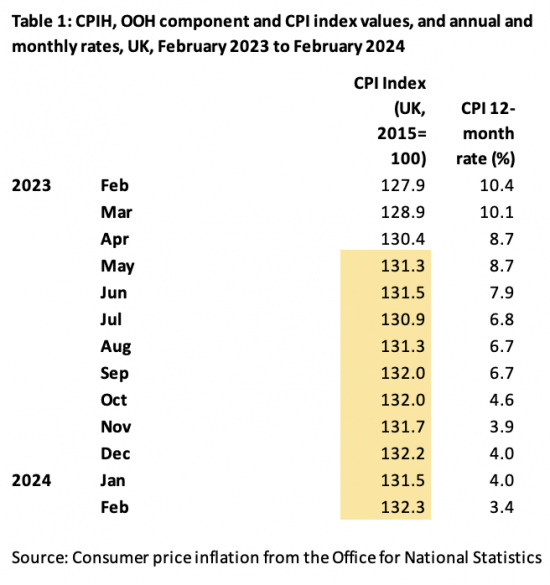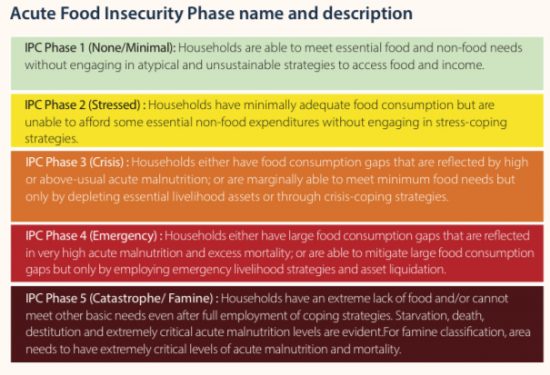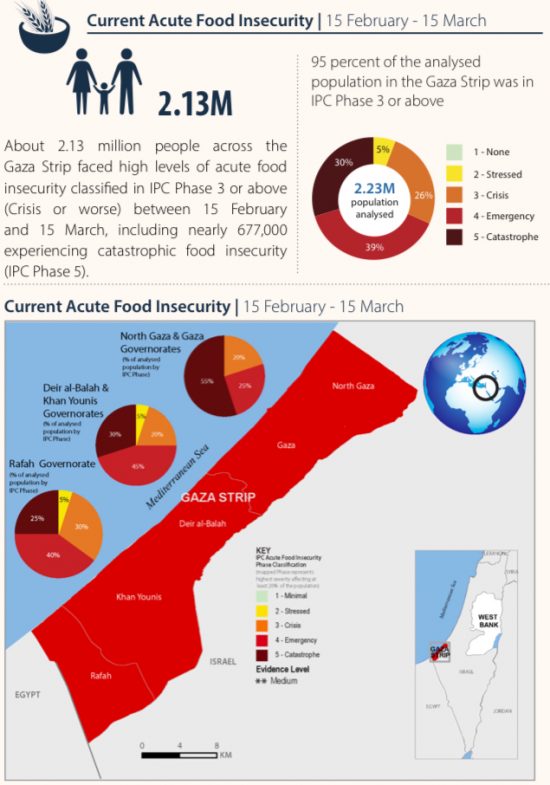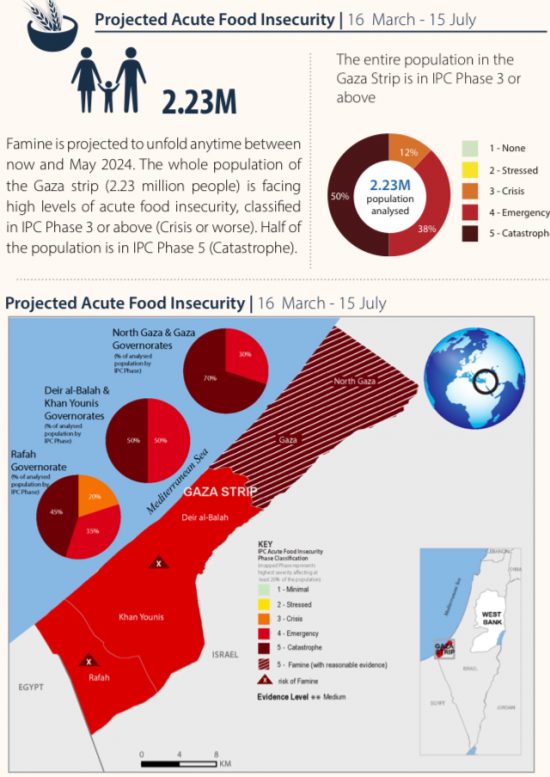Ethics
Genocide is unforgivable
There are people who are willing to say the right thing about Gaza.
This is Alexandria Ocasio-Cortez, speaking in the US House of Representatives:
There is no world in which the forced famine of 1.1 million people cannot be considered genocide. And that is exactly what we are watching unfold in Gaza now.
We must enforce U.S. laws and halt weapons transfers to the Israeli government to stop an atrocity in the making. pic.twitter.com/N40Jk3yKc7
— Rep. Alexandria Ocasio-Cortez (@RepAOC) March 22, 2024
She is right. The time for action is now. The world will not forgive those who wait. Even less will it forgive those who wait whilst supplying the arms that are being used to drive millions into famine.
One day I hope that those who are waiting whilst supplying arms will be brought to account for their actions. Genocide is unforgivable.
Growth in the economy creates wealth that never trickles down, but is what Labour says it wants. What is it going to do for the 12 million people in absolute poverty in that case?
The Guardian reports this morning that:
Overall, during the year [2022-23] 12 million people were in absolute poverty [in the UK] – equivalent to 18% of the population, including 3.6 million children – levels of hardship last seen in 2011-12 after the financial crash.
Growth will not solve this. We know that wealth never has and never will trickle down.
In that case, nothing will change under Labour without radical reforms to benefits, minimum wages, worker rights, trade union rights, and the probable creation of wage councils. So far, I am not hearing nearly enough about those reforms, which instead already appear to be at risk of being watered down.
We do, however, keep hearing from Labour about the need for growth.
As I argued yesterday, this is the wrong policy for this era in history. Meeting everyone's needs within sustainable limits should be our priority now. Unless that change happens, 12 million people will continue to live in absolute poverty in the UK.
Is that what Labour wants?
There is no reason for the Bank of England to keep interest rates at anything like 5% – so why are they going to do so?
This is data on the consumer price index for the last year or so published this week by the Office for National Statistics:
 Why show it here? That's because this lunchtime, the Bank of England will almost certainly refuse to cut interest rates, saying that they cannot be sure that the supposed battle against inflation has been won as yet.
Why show it here? That's because this lunchtime, the Bank of England will almost certainly refuse to cut interest rates, saying that they cannot be sure that the supposed battle against inflation has been won as yet.
However, look at the figures highlighted in yellow in the above table, and you will see that, since May last year, there has been almost no change in the overall consumer price index. In other words, with minor variations from month to month apart, the so-called battle on inflation has been won, and the evidence that this is the case is overwhelming.
If high interest rates were meant to beat inflation, then there is no remaining case for keeping them high. If, as I suspect, there will be no change in rates, what then will be the reason for keeping them at the extraordinary levels that they are now at? Could it be pure politics, with the aim of making the rich richer?
I don’t believe in growth
I don’t believe in growth as an economic panacea. There, I’ve said it, and most economist will be horrified.
Why say so now? Because Rachael Reeves, referred to growth 58 times in her Mais lecture this week.
She, admittedly, said it was not the solution to all problems. But, you could be mistaken in thinking that she did not really believe that, given how often she referred to it, and how everything that she offered was premised upon the possibility of its delivery.
So why don’t I believe in growth?
Firstly, that is because the way we record growth does not in any way indicate the value of economic activity . As I used to say to students when I was talking about this subject, one of the easiest ways to deliver growth would be for everyone in a society to get divorced. The expenditure on legal fees and splitting up of households would significantly boost GDP, but the sum of human happiness would undoubtedly reduce.
Then there is the matter of distribution . Most measures of growth are not even related to GDP per head. Worse still, very few provide any indication as to who has enjoyed the benefits of that growth. The best example of the resulting nonsense is found in Ireland. Approximately one quarter of its GDP is made up of the profits of multinational corporations recorded in that country, none of which are attributable to any person living there. In that case, GDP growth in Ireland might bring no benefit whatsoever to its population as a whole, let alone any one Irish person in particular. More commonly, elsewhere, when we know that most GDP growth goes to those already wealthy, it is a particularly poor target for any society.
Then there is the sustainability issue. As a simple matter of fact, we cannot consume ever more physical resources on a finite planet without destroying its capacity to sustain us.
But most of all, I do not believe in growth, because I do not think that it is nearly as important as the goal of meeting needs.
We all know what needs are. We require clean air and water. Good food is essential for a good life. So too is warm shelter. And we need education so that we can integrate in our communities, and help advance their understanding.
Much of healthcare is about community provision, by necessity. And when the events that require a personal healthcare intervention also very largely arise as a result of randomised risk, it is always the case that the community as a whole is the agency best able to carry that risk, and so meet it. The same is true for so many other needs that have to be addressed if we are all to have access to a reasonable quality of life.
Nothing about this denies the existence of wants. Meeting needs does not say that wants should not be fulfilled. But there is an order of priority here. The meeting of wants is not nearly as important as the meeting of needs.
Implicitly, GDP does not recognise that fact. The pursuit of growth does not, therefore, do so either. For that precise reason, I think that both are morally suspect, at best, and profoundly ethically biased at worst.
Nor do, I think that either can be amended to address those deficiencies. Growth is the wrong goal. Meeting need is what we must do, for everyone. Only then  can we consider meeting wants, and then only within sustainable limits.
For those who think that this suggests that we will have a miserable existence, think about what it is that have created all the most valuable memories and experiences in your life. I can almost guarantee that none of them related to material consumption that satisfied a want. Almost all of them will relate to an occasion when you shared an experience with others, whether that was an intimate moment, or a family event, or a concert, or some similar experience, such as the celebration of an achievement. What all these things have in common is that each also relates to the meeting of the need, whether that be be for emotional, intellectual, or spiritual well-being.
Meeting those higher order needs is harder, however, if our material needs are not met . It is very hard to be joyful when you are hungry, cold, destitute, or are living in fear. Meeting need is, then, the precondition of happiness. Supplying the wants of some, at cost to meeting the needs of others must always, in that case, be a sub-optimal objective. GDP growth is, in that case, always the wrong goal in economics.
That economics has moved far from its roots in moral philosophy is evident from its focus on growth . It needs to go back to its roots and talk about what is right. Meeting everyone’s needs is the right goal for economics. It is what any government should do. And that is why I will criticise any government that fails to achieve that, most especially if it does not even try to do so.
Israel and its allies – including the UK – are going to deliver a planned famine in Gaza
The IPC describes itself as follows in its website:
The Integrated Food Security Phase Classification (IPC) is an innovative multi-partner initiative for improving food security and nutrition analysis and decision-making. By using the IPC classification and analytical approach, Governments, UN Agencies, NGOs, civil society and other relevant actors, work together to determine the severity and magnitude of acute and chronic food insecurity, and acute malnutrition situations in a country, according to internationally-recognised scientific standards.
The IPC has issued a report on Gaza, based on its scale of crisis assessment, which is as follows:
 They say the situation in Gaza in the last month was as follows:
They say the situation in Gaza in the last month was as follows:

And then they note that they expect things to change as follows over the next few months:

Israel controls food supply into Gaza. No one else can.
Israel is not permitting sufficient food into Gaza. As a result 50 per cent of its population now face famine. Most of the rest face a food crisis.
International law does not permit Israel to do this. Its actions are clearly illegal. But countries like the UK and USA permit it by supplying the arms Israel needs to crush Gaza and impose this famine.
It is my hope that not just those in Israel imposing this famine should be punished, but so too should those in this and other countries that let it happen, knowing it was going on.
Irish people see their history in Palestinians’ eyes
This Tweet includes words that I think to be important from the Irish Taoiseach (prime minister):

I think he really does reflect Irish feeling when he says this.
But also some aspects of Scottish opinion as well.
And maybe the opinion of many in Wales as well.
But I doubt Westminster focussed political parties will ever understand that when they have not come close to doing so to date.
We need an economics that prioritises the needs of people
I have written this morning about the costs that will arise as a result of our need to make good on decades of underinvestment in the UK economy. Doing so, I said that:
Who will survive in the face of the need for running water in Johannesburg, and essential services in the world at large? Will it be the landlord or the people? That is the question. It will define the new economic and the new politics that we need.
I think it is only fair to say that I have asked this question before. I wrote this blog post on 4 March 2020, well before the full implications of Covid had been appreciated by many, including our government:
I have already discussed the potential economic implications of coronavirus this morning. The purpose of this blog is to summarise the underlying economic logic of what I have said.
We will have an economic crisis in 2020 as a result of coronavirus. There can now be no doubt of that; the likelihood that this epidemic can now be contained seems to be very low indeed. The evidence from China is that the impact on productivity and the economy at large is enormous. Whether we can survive the impact of this epidemic without major economic consequences arising is largely dependent upon the effectiveness of the planning that the government undertakes now. What is apparent is that at present there are a few signs that this planning is taking place. We can hope for it in the forthcoming budget, but the signs are, so far, not good.
The key issue that the government has to decide upon is who will bear the economic consequences of what is to happen. I have already indicated in my first post on this issue that I think that the consequences of this epidemic will fall upon three clearly identifiable groups, which are individuals, businesses and government. However, when appraising who will bear the cost the criteria are slightly different.
It is unacceptable that individuals bear the cost of this crisis. There is simply too little economic resilience within the population as a whole for that to be the case. Far too many people have too few savings to survive major periods of economic inactivity without massive prejudice to their short-term and long-term well-being.
In addition, it is unacceptable that many businesses should fail through no fault of their own but that is what will happen unless the government steps in to prevent the major economic downturn that might happen this year. Cash flow issues will cripple many companies.
In that case it would seem that consequences of what might happen will fall, in the first instance, on the government.
As I explained in my previous post, the government can afford to bear a substantial cost from this epidemic precisely because it alone in the economy can suffer a cash flow crisis without risk arising. That is because the government of a country like the UK which has its own central bank and its own currency always has the means to create as much cash as their economy needs. This is, if ever there was a time to do so, the moment to appreciate that fact and use that ability.
But that is not to say that there are no costs to an epidemic: clearly there are. In that case the question has to be asked as to who should bear that cost. There are three groups who should.
Firstly, landlords should. I have already suggested that should the epidemic spread, then as a matter of statutory right, any tenant should be provided with a minimum three-month rent-free period to ease the stress upon them whilst this crisis lasts. I would suggest that the grant of that extension should be automatic to anyone who does not make a due payment of rent on the required date during the period of the epidemic. They should be automatically granted this extension by the landlord without having to make any further application or to complete any additional paperwork.
I stress that the cost of this will fall directly upon the landlords in question. I am quite deliberately suggesting that they should bear the heaviest burden of dealing with the epidemic. The reason is simple and is that whatever happens they will still have an asset at the end of this period, and no other sector can guarantee that at present. As a consequence, they have the greatest capacity to bear this cost. And, if it so happens that some landlords do fail as a consequence, the assets that they have owned will still exist after this failure and so the economy can manage the consequences of this.
Second, I suggest that the costs of this crisis fall upon the finance sector. This is because, as I have also noted in my previous post, I think that anyone who has a mortgage or loan (including a lease) that they cannot afford to meet during the course of the epidemic period should be granted an automatic three-month extension to their loan period, which period might again be extended if the epidemic lasts longer than is expected. Once more, I suggest that there should be no need to apply for this extension: a simple default should be enough to trigger it. I am not, in this case, suggesting that the interest owing not be due, though: it could be settled at the end of the loan. What I am saying is that cash flow must be eased.
What these two straightforward recommendations suggest is that it is those with wealth, and not those with low incomes or tight cash flows, who should bear the burden of this crisis. That meets any definition of justice that I know of. But in both cases I am also being realistic: the value of financial assets of banks and other lenders is being preserved by this recommendation when if loan waivers were not in place it is likely that they would be prejudiced, whilst the value of land assets is not in any way diminished as a result of there being a rent-free period imposed for an external reason. To be blunt, given the risk that both the financial and rental sectors face as a result of an epidemic the proposed automatic waivers leave them in a better position than they would be in without them.
And what of government, which is the third party to suffer a loss? Its risk can be covered by coronavirus quantitative easing.
A plan of this sort is urgently needed, and now.
Why note this now? There are three reasons for doing so.
Firstly, we failed to plan properly for Covid. In particular, we failed to plan for the longer-term consequences of that crisis, and as a result, and as I predicted, we have had a cost-of-living crisis and a continuing risk of recession, none of which was necessary.
Secondly, by protecting the rights of landlords and bankers, as we did, the cost of the Covid crisis was transferred onto households, and we have all seen the consequences. Destitution is arising and there is real suffering as a consequence.
Third, this matter has not gone away. If anything, the economic crisis that we face is deepening, and the need to make choices as to whom to prioritise is growing, but there appears to be no evidence of any understanding that this choice is even required.
We really do need an economics that prioritises the needs of people. I hoped Covid might deliver that. It did not. But the need has not gone away.
Who will survive in the face of the need for essential services? Will it be the landlord and the banker, or the people? That is the question.
This was posted in the Financial Times over the weekend but remains well worth sharing because of its broader significance:
Parts of South Africa’s largest city have been without running water for almost a fortnight, a reminder to voters of the parlous state of the country’s infrastructure just two months out from a general election.
Africa’s most industrialised economy has been buffeted by power blackouts, transport problems and a crippling failure of service delivery that threaten the rule of the governing African National Congress.
That largest city is Johannesburg. The problem does undoubtedly have local dimensions to it. But it also has portents within it that are well worth noting.
Firstly, and most obviously, it should be apparent that we, as a society and, more particularly, as an economy within that society, are utterly dependent on the delivery of essential services for our survival. We cannot exist without water, energy, food and housing. We also need (and it is often forgotten in this list) clean air. We have taken for granted that these things can be delivered. The warning from Johannesburg is that the assumption that this might continue to be the case might be seriously misplaced.
The supply of basic infrastructure services in South Africa, the UK, and many other countries are at serious risk of failure.
We have not invested enough for many decades to ensure their continuity of supply, not least in the face of growing demand. We have assumed that they will be supplied. We have not guaranteed that they will be.
We have failed to heed warning signs. Most especially we have ignored the risk of flooding, which I now think to be very significant, but about which almost nothing is still being done when the evidence that sea levels are rising is very obvious. Just about the only sector that I can see that is reacting appropriately to this risk is nature conservation, where right across East Anglia new inland reed beds are being created to replace those on the coast that it is known will have to be abandoned soon. Sizewell nuclear power plant is next to one that will, almost inevitably, be lost to the sea.
We also continue to presume that our past failings, reaching back over decades, can now be made good without any impact on our ability to consume. It is presumed that even if we must invest more, which will impose real new costs on us because we have been paying too little for these essential services in the past because, firstly, we have not priced in the cost of our destruction of nature, and, secondly, we have not priced in the cost of replacing life expired infrastructure, this will have no impact on our disposable income. As a matter of fact, it will.
Supplying essential services is going to cost more in proportion to income in the future. Clean water has a price. So, too, does sustainable energy. And, come to that, so too do houses that do not flood. That price is quite high. That price will be plenty high enough to be utterly economic disruptive. By that, I mean that it will be sufficiently high to force many households into poverty, shortage, and maybe destitution unless other fundamental reforms to our economy take place.
There are those who say that as a result we should do nothing about these matters. They are on the economic right wing. This will be a major part of the Reform Party's offering now and in the future in the UK. Others, like Trump, will be saying the same elsewhere. It is not hard to work out why this will be appealing.
It is also not hard to work out why they are doing this. Their actual aim is to keep in place the returns paid out of household incomes that fuel the inequality in our society. So, they want to perpetuate high-interest payments, high rents, and high wealth extractions in the form of profoundly profiteering activity, which is much of what the addiction to tech subscriptions fuels. Together, these absorb large parts of income whilst perpetuating our deeply divided society. That division can only be maintained if there is the means for these payments - all of them rents in one form or another - to be made. When the need for additional payment for our essential costs of living rise - and they need to and are going to if we are to survive - then something has to give if society at large is not going to collapse.
During recent energy price crises what gave way were government tax revenues. Subsidies to cover energy costs were paid. Now there is a backlash against that, with the claim being made that we must suffer crumbling public services as a result. That is clearly not sustainable.
What needs to be cut is the return to bankers, landlords, monopolists, oligopolists* and others who exploit our current society at a cost to most who live in it. In other words, what must give way to provide the means for settlement of the additional costs of the investment required to make good mechanisms that ensure that everyone can meet their basic needs in life are those things that have been created to exploit the surpluses that ignoring this necessary investment has created.
The belief that we have had an economic good life that has become commonplace among some over the last few decades has resulted in increasing costs of rent, interest, financial services more broadly and in exploitation by profit gouging. It is these activities that must give way to permit the additional costs that necessary investment to make good past deficiencies in investment will now require.
This is not a capital versus labour conflict, not least because the one thing that we most definitely need is more capital.
It is, however, a rentier versus the people struggle. Who will survive in the face of the need for running water in Johannesburg, and essential services in the world at large? Will it be the landlord or the people? That is the question. It will define the new economic and the new politics that we need.
* Oligopoly exists when a small number of firms control a market. They successfully prevent competition from other firms and, as a result, keep prices above those that an open market might otherwise set. Oligopoly is widespread within the modern economy.
What is the point of power if it is not to help the most vulnerable and least well off, which there is no sign that Labour will do?
As the Observer noted yesterday:
Schools are finding beds, providing showers for pupils and washing uniforms as child poverty spirals out of control, headteachers from across England have told the Observer.
School leaders said that as well as hunger they were now trying to mitigate exhaustion, with increasing numbers of children living in homes without enough beds or unable to sleep because they were cold. They warned that “desperate” poverty was driving problems with behaviour, persistent absence and mental health.
They added a headteacher reporting that
The school had many children living in “desperate neglect”. “Kids are sleeping on sofas, in homes with smashed windows, no curtains, or mice,” he said. “I come out of some of these properties and get really upset.”
The details come from:
report published on Friday by the Child of the North campaign, led by eight leading northern universities, and the Centre for Young Lives thinktank, warned that after decades of cuts to public services, schools were now the “frontline of the battle against child poverty”, and at risk of being “overwhelmed”. It called on the government to increase funding to help schools support the more than 4 million children now living in poverty in the UK.
There is no point now thinking that we have a Conservative government. They are in such disarray that they no longer function.
Instead we have to ask what Labour might do about this, and the answer we are told, time and again, is that they will say there is no money left.
That is because they will not tax capital gains fairly, as if they are income, which is exactly what they are.
And it is because they still want to massively subsidise the savings of the wealthy by providing excessive tax relief on the pension contributions of the wealthiest in our society.
It is also because they refuse to tax income from wealth at the rates paid by those with income from work.
And it is because they still think that those on high earnings should pay much less, proportionately, in national insurance than those on low earnings should.
Just put those right and you have round £50 billion (or more) to tackle this issue.
If Labour will not do that let’s be quite clear about what it will be doing: it will be choosing to perpetuate poverty. So far, that seems to be its plan.
Nothing will ever make Labour acceptable to me until they say they they are going to really tackle the issues arising from poverty, and to root out its causes. Why should I tolerate them when they could do that, and so far say that they will not?
What is the point of power if it is not to help the most vulnerable and least well off?
The Tories have gone nuclear
I liked this from Adam Payne at Politics Home this morning:
Many Conservative MPs will remember this "bleak" week as the moment when they truly gave up any hope of avoiding defeat to Labour at the next general election.
“Something has changed for me this week," said one veteran Conservative MP.
They added:
“We have done absolutely everything possible to lose the next election," they said. "We've gone nuclear.”
That seems about right.
Gove, Hester, Sunak, and total humiliation on all fronts. Their game is over.
We really do need a general election,